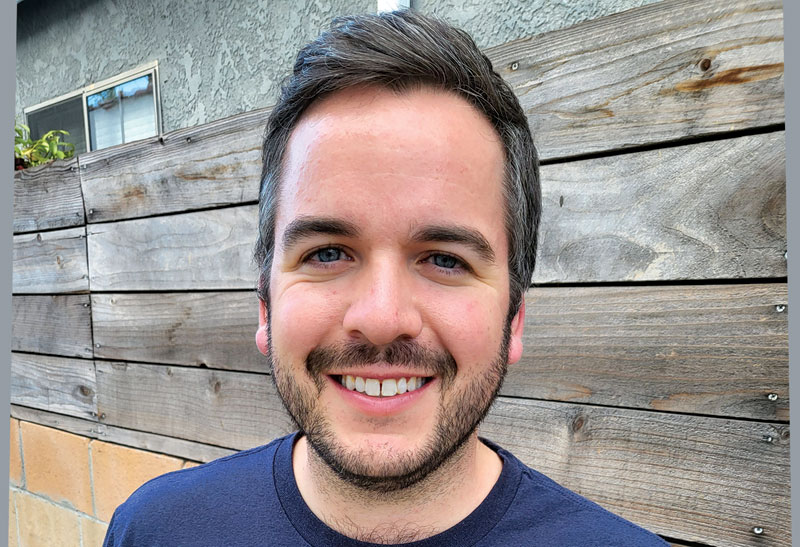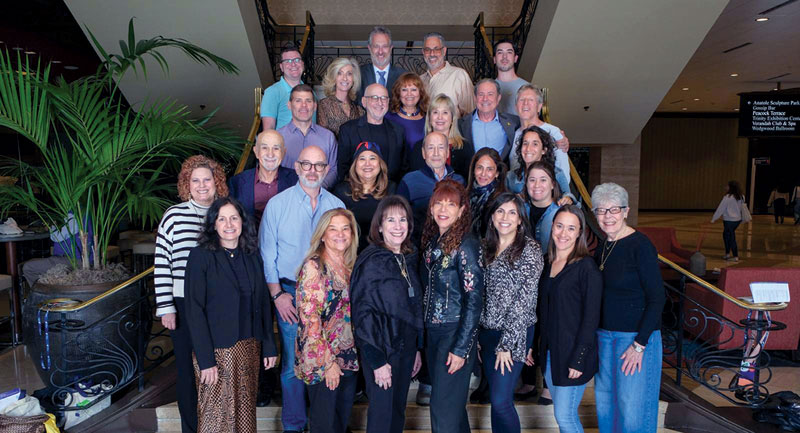When Fairfax resident Yasmine Noury boarded an El Al flight late last year, she joined the growing ranks of North American Jews who immigrated to Israel in 2005.
“I really believe in living in Israel, and I felt the best time to make aliyah was when I’m young, before I have too many things tying me down,” said Noury, 20, a Modern Orthodox graduate of Yavneh and YULA, who is already enrolled at a seminary, Michlelet Orot in Elkana, and plans to study early childhood education at Bar-Ilan University. “I luckily have ties otherwise in terms of friends, family and a school life but even before that, the connection to Israel was already there. The Jewish heritage links us without having to make any effort.”
Noury’s departure from John F. Kennedy Airport in New York on Dec. 27, linked her with the 3,200 North American Jews who immigrated to Israel in 2005, including 84 Californians, 30 of them L.A. residents. They came through joint efforts of the quasi-governmental Jewish Agency for Israel and Nefesh B’Nefesh. This nonprofit organization has helped settle approximately 7,000 U.S. and Canadian immigrants since its launch in 2002. Several thousand more are expected in coming years.
Making aliyah through Nefesh helps reduce bureaucratic red tape. Immigrants fly on complimentary, one-way tickets and when they land in Tel Aviv, they receive the new identity cards that entitle them to a “sal klita,” a basket of benefits meant to ease their absorption into Israeli society. These include tax breaks on shipments of home appliances, mortgages, living stipends, Hebrew-language classes and more.
The help is often greatly needed. The greatest challenge to a successful klita, or absorption, is finding work, a support system and a sense of belonging. In fact, approximately 80 percent of North American immigrants arrive through Nefesh. Those who arrive through the traditional channels of the Israeli government seek out Nefesh B’Nefesh services after they arrive.
The formula seems to be working. As of January 2005, 99 percent of those immigrants who have received aid have remained in Israel, 94 percent of families have at least one employed spouse, 110 children have been born and 36 immigrants have married, including two couples who met on Nefesh flights.
The program’s success is largely the result of the vision of its founders, Rabbi Yehoshua Fass and Tony Gelbart, president and CEO of CPM Worldwide Group, a Florida-based investment company with holdings in Israel and the United States. They have attracted several other American Jewish philanthropists to contribute to Nefesh B’Nefesh efforts. Despite rumors to the contrary, only a small portion of funding comes from Christian evangelists.
“We don’t care if you’re Ashkenazi or Sephardi, right or left, religious or not,” Gelbart said. “If you’re Jewish and you have the desire, we’re going to help you.”
American Jews of all stripes are moving to Israel for a variety of reasons, including religious motivations, hopes for raising a family in a Jewish state, a sense of kinship and a growing affinity for the country.
“North American aliyah is very different from what is happening in many other countries,” Fass said. “Ours is an aliyah strictly of choice and idealism, not of escape or refuge. We believe that a large reservoir of American and Canadian Jews have dreamt or considered aliyah as a possibility for themselves, and we know many of the reasons or obstacles in their way that have prevented them from realizing that dream.”
Nefesh recognizes that money is a major obstacle for many potential applicants. The expense of making pilot trips, finding a new home, acquiring or shipping household appliances and furnishings and the income lost during the process often discourages North Americans from making the move. Nefesh estimates a family of six will require $21,920. Applicants are awarded a loan, at first, but it turns into a grant if recipients remain in Israel for more than three years. Singles receive approximately $5,000 to $7,000; families get between $15,000 and $22,000.
For the marjority of olim, or immigrants, the first few years are the most difficult, even with financial assistance as well as workshops and social events sponsored by Nefesh throughout the country.
Shlomo Katz, 25, earned a master’s degree in computer science before moving to Haifa from Fairfield, Conn., with his widowed father more than a year ago. Originally, he felt very supported by Nefesh. But a year later, a job still hasn’t come through. Katz recently enrolled in a yearlong software engineering course to enhance his qualifications for a “high-level job.”
“I’m not happy about it,” he said. “Luckily, I have enough to live on with savings from the U.S. and by living with my dad.”
Israeli rents can be quite low by U.S. standards. A bargain studio apartment near Rehavia in Jerusalem can go for as little as $300, but living at an American standard, with many other costs comparable to the United States, is nearly impossible on a typical Israeli paycheck. Hourly minimum wage, for instance, is less than $4. As a result, many Israelis live beyond their means. For Shlomo Katz’s father, Eliezer Katz, higher wages in America make brief stays there at the home of friends worthwhile. While in the United States, the elder Katz supplements his income as an electrician. But for now, the family is remaining in Israel.
For Deena and Aaron Singer, both 33, the first 12 months after their aliyah from New York in July 2003 required them to each return individually to the States for short term visits to help care for ill family members.
“I was nervous about leaving family, finding jobs, all the typical aliyah fears,” Deena Singer said. These days, Aaron Singer works in publication sales at the Shalem Center, a post-Zionist think tank, and Deena Singer finds meaning in her job as a behavioral consultant with autistic children. After two years in an Orthodox absorption center, the Singers moved to a “mixed” moshav near Gush Etzion where they feel they are giving their own children, Naama Shira, 5, and Ahuva, 3, the benefit of living among a variety of Jews.
Daniel Rebuck, 36, didn’t have a job lined up in advance of his aliyah this winter, but he remains hopeful while he studies in an ulpan, an intensive Hebrew-language course. A former professional soccer player, Rebuck would like to find a position coaching at a soccer club, working as he did before Hurricane Katrina wiped out his job in New Orleans.
“I’ve been to Israel six times and I always feel very much at home,” he said. “With the hurricane, I looked at my life and I thought, ‘If I don’t do it now, I never will.'”
Yasmine Noury says she already lives a very normal life in Israel as a student, and feels very fortunate “every day to be part of a Jewish nation.” She looks forward to getting married and having children in the Holy Land.
“That’s something that is crucial in my aliyah,” she said. “I feel strongly it’s very important to raise a family in Israel.”
She is optimistic that one day, her two younger siblings, a 16-year-old brother and a 12-year-old sister, will follow. And if they make aliyah, she says, then her parents might consider it.
“It’s a scary thing because you, of course, want your family to follow,” she said. “It’s the ultimate goal that you should have everyone with you. Part of building your own family and being part of Am Yisrael [the People of Israel] and Eretz Yisrael [the Land of Israel] is that you will have family to be around. You never know what the future holds.”





















 More news and opinions than at a Shabbat dinner, right in your inbox.
More news and opinions than at a Shabbat dinner, right in your inbox.